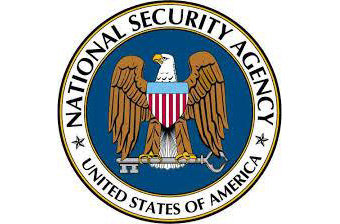In the days leading up to the vote a call went around the internet asking people to contact their senators and representatives to let them know they wanted this vote to pass so that this mass surveillance would be put to an end. Sadly the bill was not passed in the House of Representatives and was voted down by a rather narrow majority (217 to 205) and is a disgrace when you consider the implications of leaving this type of program in play.
Even without the thought of the massive violation of people’s 4th amendment rights (unlawful search and seizure) you have a significant impact to businesses. Now that the word is out that companies are actively cooperating with the NSA to share user data it will undermine confidence in those services which will have an economic impact on the US. These programs are often useless against real criminals as they will find ways around it (it is very similar to the piracy debate). This means that the only people that are going to be impacted are the innocent. The average person will have to pay higher fees to support increasing surveillance and monitoring while having details of their lives exposed to review.
The central issue here is ownership. Who owns and has the right to your digital information. If this were real property then there would be no question, but lawmakers want to have things in two buckets. They want to tell you that your digital files are not yours, they belong to the person holding them at the time (Google, Microsoft, Yahoo etc.). At the same time they want you to believe that the digital property of companies is real property which holds the same penalties as real property (in some cases much higher penalties). This is a massive contradiction when you look at it, how can a private citizen have less rights to their own property (thoughts, documents communication) than a corporation? We all know that they should not have less, but sadly the US Government seems to have forgotten this over the last couple of decades. Remember, Microsoft, Google and others said they do not give out information about corporations, but they will hand your information over in a heartbeat.
What the politicians in Washington (and around the world) are missing is that people are going to grow tired of being treated as an afterthought in both law making and the political process. There are complaints that people are not following the laws, that piracy is rampant, and that there is more social unrest; yet these same complainers are not doing anything to change the situation. Piracy (digital piracy) has existed for many, many years in different forms. It will always exist, but it can be combatted in very specific ways. Stop trying to empower corporations (who care about nothing but profit) and empower the consumer. Piracy has become a form of social protest in the same way that defacing corporate and government websites has. It is how the new technological generation shows their displeasure and it is only going to get worse.
I would not be surprised to see Anonymous enter into the fray soon in one way or another. We know they have weighed in on the actions of the NSA, FBI and other agencies in the past and are sure to do so now. In the meantime we offer you a listing of how voted before and against HR 2397 it is a chance to get a measure of the character of your representation in Washington. You might find that many of the people that voted the bill down got into office on promises to protect your right to privacy.
Thanks to TechCrunch for the vote list link
Tell us what you think about this new development in our Forum




